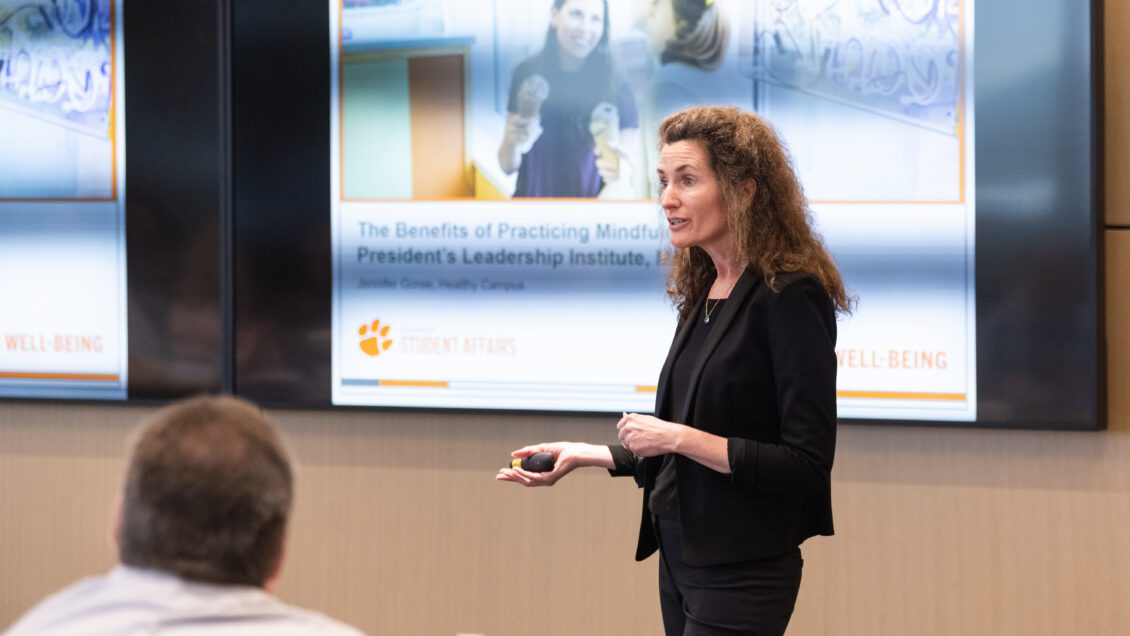
Editor’s Note: The monthly “Elevate Well-Being” blog series shares thoughts and reflections of Clemson Well-Being Council members and University faculty and staff. Our March 2025 blog is courtesy Director of Healthy Campus Jennifer Goree.
In today’s world, where distractions are constant and stress is common, mindfulness has emerged as a powerful tool for improving mental and physical well-being. Mindfulness is the practice of unifying the body and mind in the present moment with kindness and curiosity and without judgment. We build our mindfulness skills when we meditate, just like we build our muscles when we exercise.
I was drawn to mindfulness through my experiences with being “in the flow” as part of the creative process. As an actor in high school and college, I used breathing exercises to calm and center myself before walking onto the stage. I could feel the power of being fully present in the moment and how that focus led to a better performance and a sense of fulfillment. As I got older, I looked for those moments in other areas of my life — playing music, swimming in the river, walking in the forest; I sought out times and places where I could focus on my breath and engage my senses in my surroundings. I realized this could help the campus population I served and could see was struggling. So, when I had the opportunity to study mindfulness at the Duke Mindfulness Institute for Emerging Adults (MIEA), I jumped at the chance.
I learned one of the most significant benefits of mindfulness is stress reduction. Many people experience anxiety due to dwelling on the past or worrying about the future. By practicing mindfulness, we learn to focus on the present moment, reducing negative thought patterns that contribute to stress, anxiety and depression. Research shows mindfulness-based interventions, such as meditation and deep breathing exercises, help lower cortisol levels, lower blood pressure, strengthen the immune system, and even alleviate chronic pain. As a result, people who practice mindfulness regularly tend to experience lower levels of anxiety, greater emotional resilience and overall well-being.
Mindfulness also has been shown to enhance cognitive function and emotional intelligence. Studies suggest mindfulness improves attention span, memory and problem-solving abilities by training the brain to focus on the present. It cultivates self-awareness and empathy for yourself and others, which strengthens interpersonal relationships. When we are curious about our emotions and reactions, instead of being swept away by them, we can respond with more compassion and patience.
Incorporating mindfulness into your life is not difficult. You can add practices, such as mindful breathing, body scans and gratitude exercises, to any part of your day. I practice mindfulness before meetings or presentations, during times of stress or moments of solitude. I incorporate mindfulness into my walks across campus and moments before challenging conversations.
Finding moments of mindfulness throughout my day has been transformative. I see the difference it makes in terms of mental clarity, emotional balance and physical health. By embracing mindfulness as a skill we practice, we cultivate a sense of inner peace and resilience. We feel more fulfilled, more present, more in tune with ourselves and the world around us. Mindfulness serves as an anchor, keeping us steady in the turbulent waters of our time.
To learn more, check out my Mindful Mondays series here.
